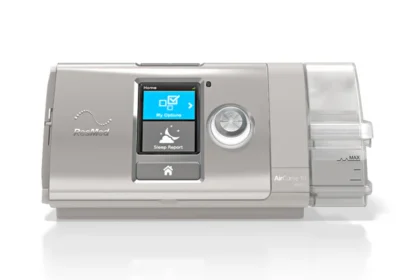Running a clinic or a hospital isn’t a easy. There are appointments to schedule, patient records to update, bills to manage, follow-ups to make, and the staff needs coordination. Moreover, you have to make your patients feel looked after, listened to, and valued. It is a lot.
That is why a lot of healthcare facilities now use CRM For Clinics And Hospitals. If you have never heard of CRM, it is basically a smart system that helps you keep track of your patients, communicates with them more effectively, and makes things much smoother.
Think of this as a helpful assistant who does not sleep, forgets nothing, and keeps everyone in the know. Let’s break down why a CRM system isn’t just nice to have; rather, it is a game-changer in keeping your patients loyal and happy:
Why Patient Loyalty Matters
You might think of loyalty in a restaurant or a store, but it’s just as important in healthcare. Loyal patients:
First, keep visiting for follow-ups and treatment.
Next, trust your staff and services.
Also, refer friends and family to your clinic.
Finally, are more likely to follow treatment plans.
And vice versa: if your patients feel ignored, wait too long, or get lost in the shuffle, they might take their business elsewhere. A CRM ensures that this doesn’t happen.
How CRM Helps Clinics and Hospitals
A clinic or hospital CRM works behind the scenes to make things run smoothly. Moreover, here’s what it does:
Organizes patient records.
Each patient has a profile, and all of their appointments, medical history, test results, and even preferences reside in one place. No longer will physicians and nurses have to flip through files or hunt in different systems.
Automates Reminders and Follow-ups
Forgetting happens; it’s human, after all. A CRM automates reminders for appointments, tests, or follow-ups. Patients feel cared about while the clinics report a reduction in no-shows.
Communication becomes easier.
Be it sending health tips, reminders, or personalized messages, a CRM lets you connect without hassles. Patients will feel connected, not ignored.
Keeps Staff on the Same Page
With EHRs, the physician, nurse, and administration all access the same patient information. That means less duplication of work, no confusion, and fewer mistakes.
Tracks Feedback and Satisfaction
Most CRM systems enable a facility to take feedback from the patients. As a result, issues can be identified and resolved well in time before they become big problems. Happy patients are loyal patients.
Real-Life Benefits of CRM in Healthcare
Let me illustrate this. Imagine a recent patient, Mr. Sharma, who came to your clinic. With a CRM:
He is due for a follow-up check-up.
The system notes that he prefers afternoon appointments.
The doctor sees his latest test results before he even walks in.
After the visit, he receives a friendly message thanking him and with suggestions on what to do next.
Mr. Sharma feels seen, cared for, and understood. That’s loyalty in action.
Features That Make a Difference
A good CRM For Clinics And Hospitals doesn’t just store information; the best ones make life easier. Features to look for include:
Centralized Patient Database: a single location for patient information.
Automated Reminders: for appointments, medicine refills, or tests, ensuring nothing is missed.
Multi-Channel Communication: via email, SMS, or even app notifications, so patients stay connected.
Reporting Tools: visualize trends, monitor satisfaction, and identify gaps, helping staff make informed decisions.
Secure Access: protects sensitive medical information, keeping data safe and compliant.
Overall, when these features are in place, staff are more productive and patients feel valued. In short, it’s a win-win.
How CRM Improves Patient Experience
Patient experience is more than courteous staff or a clean waiting room; in fact, it’s about feeling remembered and important. A CRM can:
First, schedule smarter and reduce wait times
Additionally, send personalized health tips
Also, track and remind patients of future appointments
Finally, ensure seamless, consistent care after discharge
This all shows patients that your clinic cares about them, not just their money. When they know they are being taken care of, loyal patients are created.
Why Hosval Stands Out
Not all CRMs are created equal, and you need one that’s easy to use, secure, and actually helps your staff. Our CRM solutions are designed with clinics and hospitals in mind.
With our system, you can:
Easily keep patient information organized and secure.
Additionally, automate reminders and communications.
At the same time, minimize errors and simplify workflows.
Ultimately, the goal is to let your staff focus on what really matters — giving patients the best possible care.
Tips for Making CRM Work for Your Clinic
Installing a CRM is just the beginning. To get the most out of it:
Train Your Staff Well
First, make sure everyone knows how to use it. After all, a system is only as good as the people using it.
Keep Patient Information Current
Next, accurate information translates into accurate care. Therefore, encourage the staff to update records routinely.
Personalize Communication
Additionally, tailor messages to truly mean something to each patient using the CRM. Nobody likes generic reminders.
Track Results
Also, leverage reporting tools to view exactly how your CRM is helping to improve patient satisfaction and loyalty.
Ask for Feedback
Finally, allow patients to describe how the system feels. They might have useful suggestions to make it even better.
The Bigger Picture
A CRM system for clinics and hospitals is way more than technology; it’s about trust, care, and long-term relationships. When patients are seen, heard, and remembered, they will stay loyal.
Such loyalty will translate into better health outcomes, strong reputations, and smooth operations.
Think of it this way: a CRM isn’t replacing doctors, nurses, or staff. It’s giving them superpowers, helping them do their jobs better, faster, and with fewer mistakes.
Easy Wins You Can Start Today
Even if your clinic has never used a CRM before, you can start small:
Automatically schedule follow-up reminders.
Next, send appointment confirmations via SMS.
Then, maintain a single, up-to-date patient record.
Finally, collect feedback from patients after their visits.
Together, all these small steps build trust and make patients feel cared for. Over time, such thoughtful gestures naturally grow into lasting loyalty.
Final Thoughts
Operating a clinic or hospital can be challenging; however, how do you support patients in being happy and loyal? The CRM system is the friendly helper that remembers everything and keeps everyone on track to make all patients feel special.
With the right CRM, like Hosval, you’re going to save time, reduce mistakes, and most importantly, make patients feel valued. That’s how loyalty grows-one small, thoughtful interaction at a time.
Want to improve patient loyalty and smooth the operation of your clinic? Take a closer look at CRM solutions for clinics and hospitals today and start fostering stronger, happier relationships with your patients.



